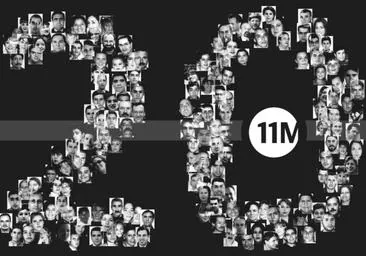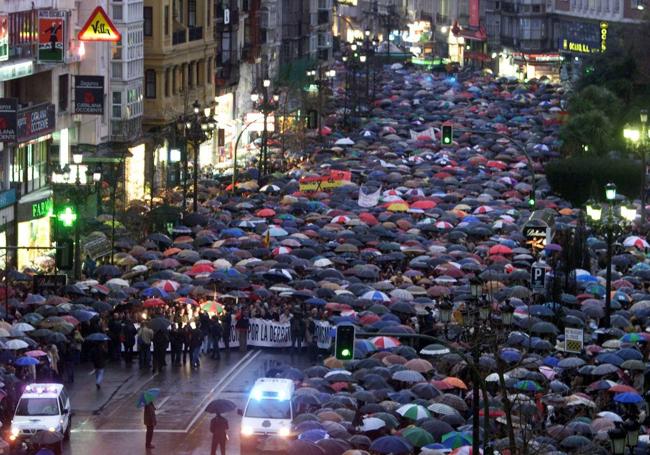Actions and consequences
For the right, the PSOE came to power on the wave of anger from the 11-M attacks and, as such, were an illegitimate government. For the left, the PP tried to maintain power using a terrorist attack as a way to galvanise its voters and sway the moderate centre
David Andrews
Malaga
Friday, 15 March 2024, 17:00
This Monday, Spain commemorated the 20th anniversary of the 11-M terrorist attack in Madrid, the worst on European soil this century. The fateful date ... is remembered across the EU as the European Day of Remembrance of the Victims of Terrorism.
The events are particularly memorable due to, of course, the number of victims (192) and the events which occurred throughout the ensuing days. To summarise, the attack took place early on Thursday morning (before 8am) on Madrid's busy commuter-train system. The right-wing PP, who was in government at the time, from the outset pointed the finger at ETA (the Basque-nationalist terrorist group who had reined terror on Spain since the 1960s), however as the hours (and days) progressed the police investigations and certain media sources moved the focus to Al-Qaeda and a jihadist cell.
On Friday (12th) more than 2,000,000 people took to the streets to condemn the attacks, however the national elections on the Sunday were what really interested the politicians. Conclusions were reached in government offices, if the attack was carried out by ETA, the PP would return to power; if the attack was the work of Al-Qaeda, then the left-wing PSOE had a chance of winning. On Saturday thousands marched throughout Spain demanding a thorough investigation and a credible line of argument from the government. On Sunday the PSOE won with a simple majority.
What stemmed from these terrible attacks, many believe, was the definitive fracture between the left and the right in Spain. Until then, terrorism had always been viewed as a matter of national importance and a point of common consensus between political parties. However, this nexus of connection was broken and, depending on your political allegiances, defined your stance on this matter (and many others) until today. For the right, the PSOE came to power on the wave of anger from the 11-M attacks and, as such, were an illegitimate government. For the left, the PP tried to maintain power using a terrorist attack as a way to galvanise its voters and sway the moderate centre. To date, the two sides cannot agree on a common narrative and the fallout remains an emotive bone of contention.
For me, it also paved the way to a slippery slope where politicians' actions and words started to have no real or moral consequences. A free-for-all where inflammatory rhetoric has become the order of the day and voters have became impervious to the lies and deceit of their own representatives; the goal on both sides being to incite and rabble-rouse their own irascible electorate into turning out and voting for them. The fact that what is actually being said is untrue, preposterous or plainly insane nowadays seems to bear neither comeback nor moral/political retribution.
As a society, we seem quick to "cancel" a lame-brained celebrity for his/her idiotic comments on "X", yet unable to hold to account our politicians who wilfully lie, deceive or manipulate us.
¿Tienes una suscripción? Inicia sesión

